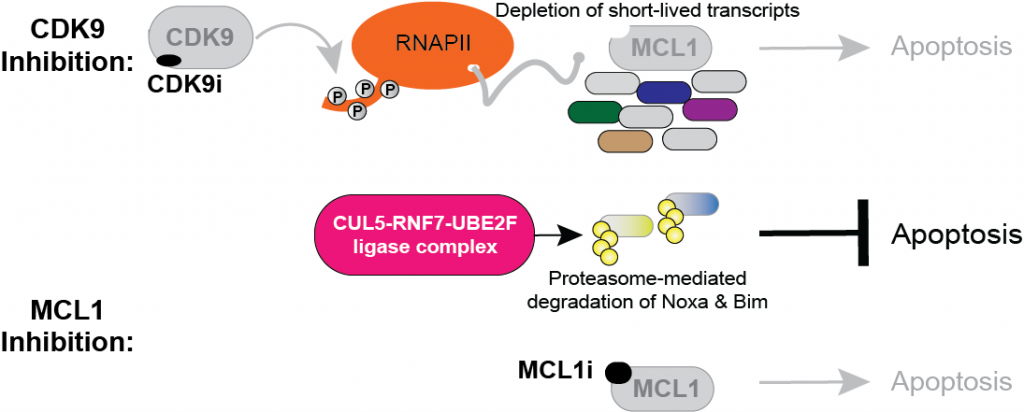MCL1/CDK9 screen published in eLife
Our CRISPR screening projects are starting to come out! Today work from postdoc Shaheen Kabir, in collaboration with oncologists at AstraZeneca, was published in eLife. Shaheen used a very creative FACS screen to find genes involved in the early apoptotic response to CDK9 and MCL1 inhibitors. Inhibition of CDK9 reduces transcript half-life and indirectly inhibits MCL1, whereas the other compound screen directly binds MCL1. Several cancers respond well to these new compounds, but others are already completely resistant. Shaheen went looking for genes involved in this resistance and found some very interesting shared hits. She focused her mechanistic work on the CUL5 ubiquitin ligase complex, which is a multi-component system used to degrade target proteins. Almost every component of the CUL5 complex was a hit in the screen, and Shaheen found that knockdown of CUL5 components affected the stability of pro-apoptotic proteins Bim and Noxa. CUL3 type ligases are already established cancer targets, and Shaheen’s work shows that CUL5 could also be targeted to synergize with front-line cancer therapeutics. Congratulations Shaheen!



